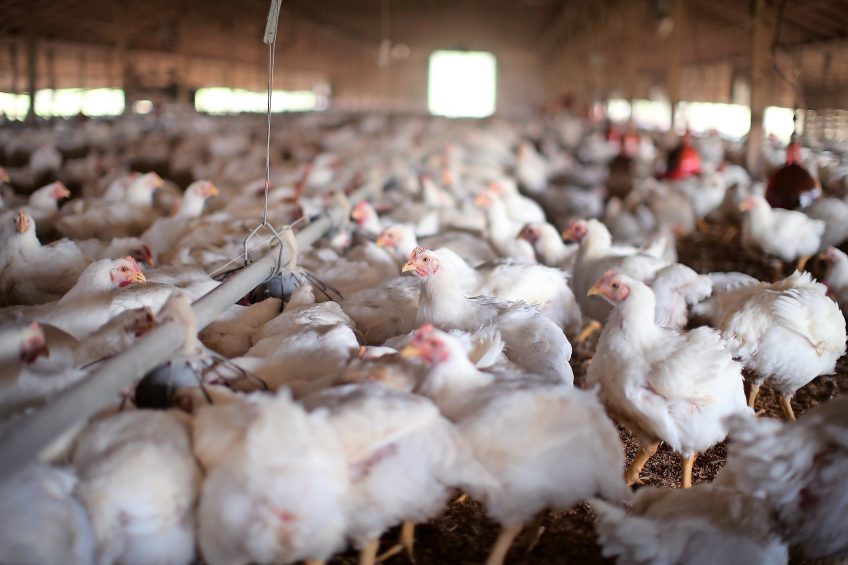Cranswick tops Benchmark on farm welfare

British food producer Cranswick has retained its pole position as the top ranked producer in the 6th annual Business Benchmark on Farm Animal Welfare awards.
Cranswick, which moved back into the poultry sector in 2016 with the purchase of Crown Chicken, was the only producer to be listed in tier 1, which was otherwise dominated by the retail sector (Marks and Spencer, Waitrose, Migros and Co-op Group (Switzerland).
Welfare an integral part of management practices
The Benchmark, which is supported by investment firm Collier Capital and animal welfare organisations Compassion in World Farming and World Animal Protection, shows that many of the 110 global food companies (11 more than last year) covered by the Benchmark are integrating farm animal welfare into their management and reporting practices.
For example, 47% of these companies now have explicit board or senior management oversight of farm animal welfare, and 72% have published formal improvement objectives for farm animal welfare.
But with the average score of just 37% remain fairly low and 41 out of 110 companies still appear in the bottom 2 tiers (5 and 6), indicating that they provide little or no information on their approach to farm animal welfare.
Cranswick’s strong commitment to animal welfare
Cranswick retained its top ranking due to a strong commitment to animal welfare across its own operations and throughout its supply chain in the UK and globally.
Judges were impressed with their clear positions on the avoidance of routine mutilations, the reduction of antibiotic usage, the avoidance of animals that have been subject to genetic engineering or cloning, long-distance transport and pre-slaughter stunning.
2 Sisters Food Group moves up a tier
2 Sisters Food Group, which has been under the spotlight in recent months, moved up a tier to tier 3 this year. This tier acknowledged the company’s efforts but underlines the fact there is still more work to be done.
2 Sisters: Clear antibiotic policy
The company has a detailed overarching farm animal welfare policy including a clear antibiotics policy and strategy for poultry, and a universal commitment to avoiding animals that have been cloned. All of 2 Sisters Food Group’s poultry, beef and pork products areas assured to at least Red Tractor standards and it has published targets relating specifically on the maximum journey times for chicken, beef and lamb and on the proportion of broiler chickens in its global supply chain reared at lower stocking densities.
2 Sisters: Lacks detailed information on welfare policies
However, the company still needs to provide more details and clarity on its animal welfare policies and on how its senior management oversees their implementation, the report said.
Nick Murray, 2 Sisters Food Group communications director, said : “2 Sisters Food Group is committed to relentlessly improving welfare standards. We are determined to be the best in our sector in the production of sustainable, quality livestock, grown to the high standards which our retailers expect. The latest BBFAW benchmark underlines this commitment as we strive to improve our standards year on year.”
Noble Foods fell from tier 1 to tier 2
Noble Foods fell from tier 1 to tier 2 in this year’s report, due to the increased weighting given to performance questions. The report said Noble Foods had made a significant effort to report its performance relating to laying hens in the USA and the UK in 2017. However, their UK commitment for cage-free laying hens only covers 70% of its stock and there is a lack of reporting on the company’s welfare commitments and performance relating to dairy cows that supply ingredients for its Gu product line.
Also read: Labour launch Animal Welfare Plan
Animal welfare moving from farm gates to boardroom
Dr Rory Sullivan, BBFAW expert advisor, said: “It is clear that farm animal welfare is moving from the farm gates to the boardroom. Increasingly, food companies see farm animal welfare as a core risk and strategic issue, featuring alongside issues such as climate change, water and public health.
“Despite this, 41 of 110 companies covered by the Benchmark – a group that includes household names such as Kraft Heinz, Mars Inc and Starbucks provide very limited information on their approach to farm animal welfare.”
Philip Lymbery, CIWF chief executive, said he was encouraged by a growing number of companies that were prioritising animal welfare and particularly pleased that the restaurant and bar sector had seen a step change in attitude.














